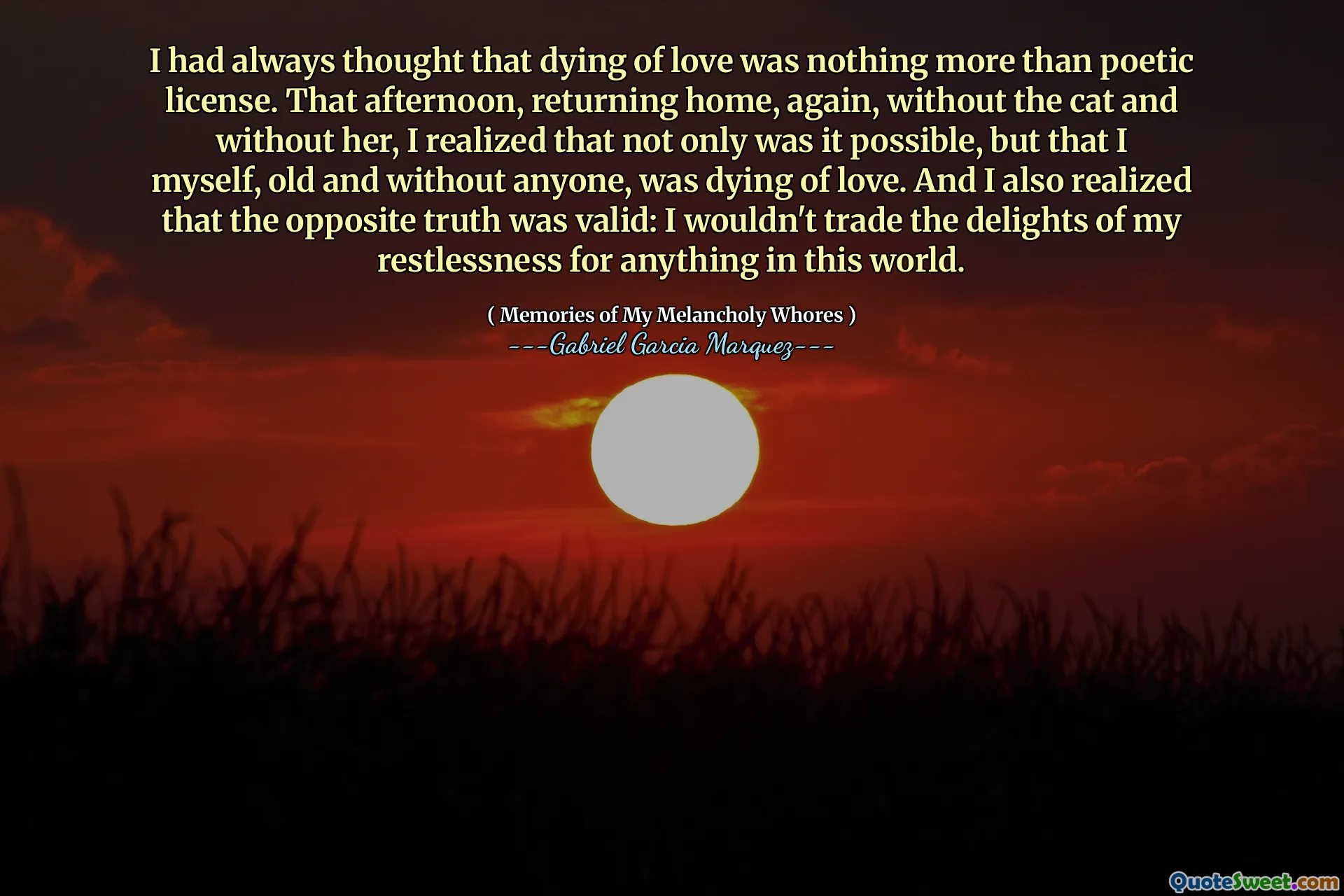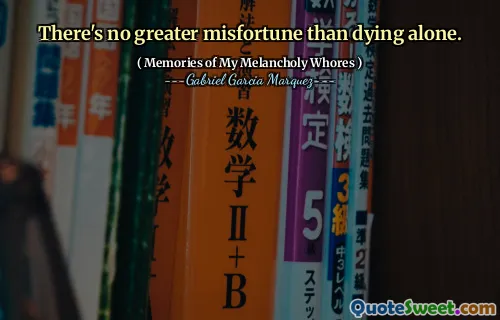
I had always thought that dying of love was nothing more than poetic license. That afternoon, returning home, again, without the cat and without her, I realized that not only was it possible, but that I myself, old and without anyone, was dying of love. And I also realized that the opposite truth was valid: I wouldn't trade the delights of my restlessness for anything in this world.
In Gabriel García Márquez's "Memories of My Melancholy Whores," the protagonist reflects on the profound impact of love on his life. Initially dismissing the idea of dying from love as mere poetic exaggeration, he is confronted with the painful reality of loss, particularly after returning home alone, devoid of both his cat and the woman he loved. This moment of clarity brings about an awakening to the depth of his feelings, revealing a vulnerability that stems from his old age and solitude.
Despite the sorrow he experiences, he also acknowledges a paradoxical appreciation for his emotional turmoil. The protagonist confesses that he would not exchange the intense experiences of his restlessness for anything else, indicating a complex relationship with love that intertwines joy and suffering. This duality speaks to the essence of human experience, where love can both uplift and devastate, but ultimately remains invaluable and irreplaceable.











